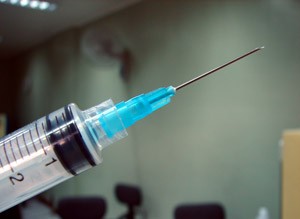Pereiro and Noah stir up drugs debate with accusations
 Thirteen months after he caused a furore when he said that all cyclists dope, Italian Olympic Committee (CONI) anti-doping prosecutor Ettore Torri has said that things have dramatically improved in the sport.
Thirteen months after he caused a furore when he said that all cyclists dope, Italian Olympic Committee (CONI) anti-doping prosecutor Ettore Torri has said that things have dramatically improved in the sport.
“When I began with CONI (in 2006) the situation was dramatic,” he said at an anti-doping conference held on Saturday, according to news agencies AP and ANSA. “Today I can say that there has been a monumental change.
“Good work has been done by all those involved, including the riders’ association. I’m not optimistic enough to say that doping has been beaten, but certainly among professionals it has been reduced a great deal and I’ve contributed to that.”
Torri was threatened with a multi-million euro lawsuit by the Liquigas team last year after he made his comments to AP. He said then that interrogating riders suspected of doping had convinced him that it was rife in the peloton.
He refers to the dearth of doping cases in cycling’s three Grand Tours in 2011 as a sign that things were much better than before. “Interest in doping has lessened,” he claimed. “Before there were few tests and the penalties were light. Now it’s not worth it anymore.” However he warned that there was still a serious problem amongst amateur riders, saying that winning money is not the motivation. “I’ve met entire families who dope. From lawyers to manual labour workers, they do anything just to win a salami in ridiculous races.”
Pereiro and Noah raise a storm:
At the same time two retired sportsmen have stirred up plenty of debate with comments on doping in sport. The Spaniard Oscar Pereiro, who was awarded the 2006 Tour de France after Floyd Landis tested positive, had a lengthy angry exchange with Spanish journalists on the Punto Pelota TV show.
Reacting to a dismissal of cycling as a doping sport, the former Caisse d’Epargne rider said that what is banned in that area is either legalised or overlooked in football. He referred to players who tested positive but were excused because they said that energy mixes were the source, while stating that the same circumstances for cyclists would have led to a ban.
He also referred to French soccer player Zinedine Zidane, who is alleged to have told the singer Johnny Hallyday that he underwent twice-yearly transfusions during his career.
“Zidane has admitted that he underwent blood transfusions in Switzerland to regenerate his body,” he said. “That’s a positive in cycling.”
Pereiro, who was accused by Landis of having himself doped, pointed out that the Operacion Puerto Affair involved other sports. The main doctor involved in that, Eufemiano Fuentes, has said on several occasions that he treated footballers; Pereiro said that he hoped the doctor would decide to tell all.
Meanwhile former French tennis player Yannick Noah told the Le Monde newspaper on Saturday that the performances and strength of Spanish athletes meant that he believed there was widespread doping occurring there.
“How can a country dominate sport from one day to the next? Have they discovered avant-garde training techniques and methods that no one else imagined?,” he said, making it clear that he didn’t believe this was the case.
He complained that French athletes were at a disadvantage. Controversially, he said that the rules should be relaxed in order to level the playing field.
“We’re not being treated in the same way as the majority of our adversaries from other countries,” he said. “The best attitude to adopt is to accept doping. And then everyone will have the magic potion.”
Noah, who won the French Open tournament in 1983, appeared at last month’s presentation of the 2012 Tour de France. He and five-time winner Bernard Hinault unveiled the yellow jersey that will be used next summer.